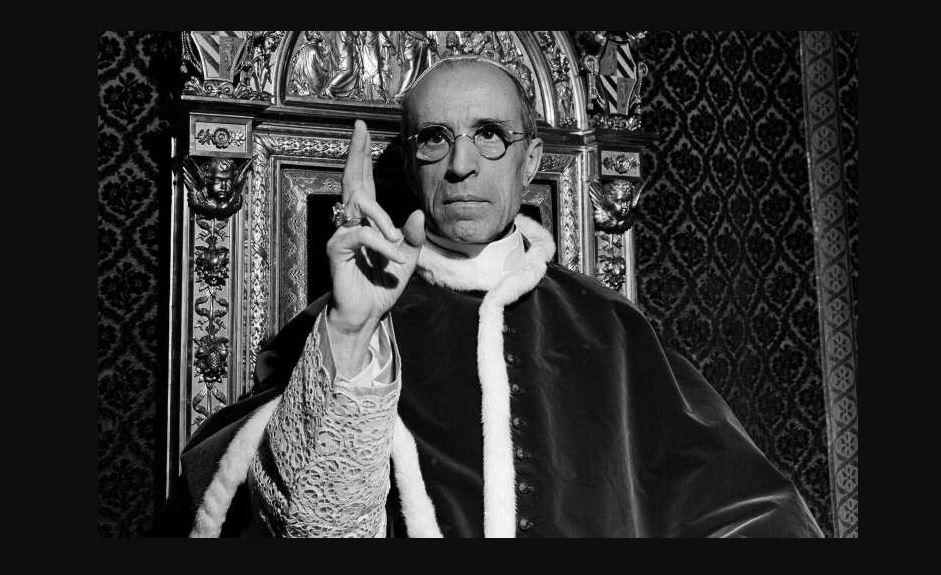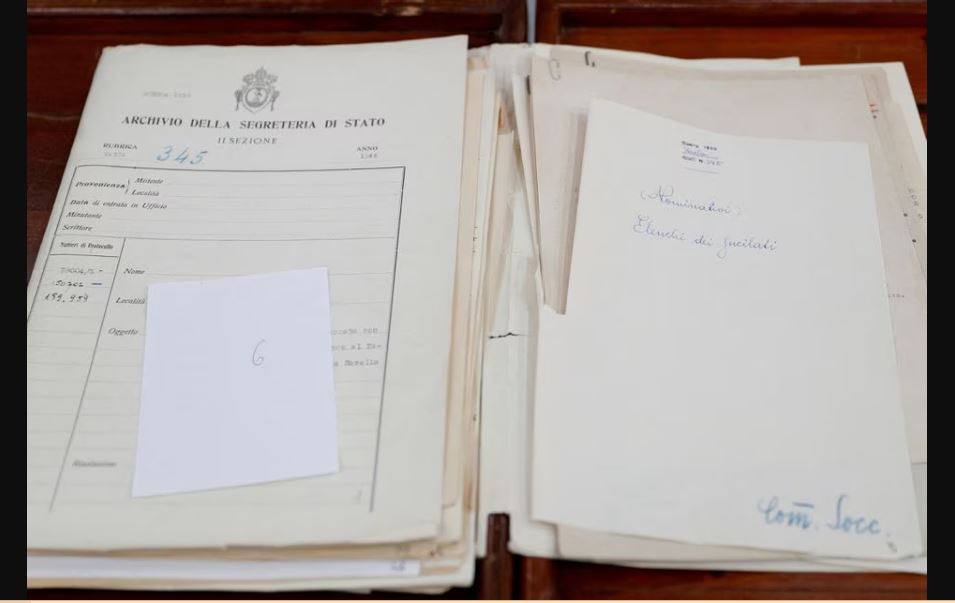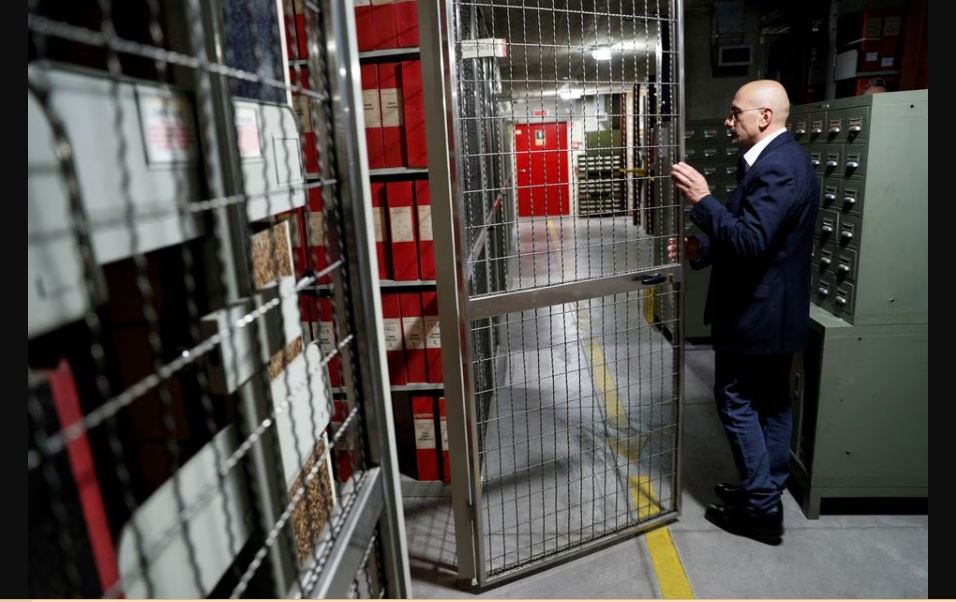Letter Suggests Pope Pius XII's Early Knowledge Of The Holocaust
Letter suggests Pope Pius XII's early knowledge of the Holocaust as recent correspondence has revealed that during World War II, Pope Pius XII received detailed information from a trusted German Jesuit indicating that as many as 6,000 Jews and Poles were being subjected to gas chambers daily in German-occupied Poland.
Author:Bernard HorneSep 18, 20239.3K Shares186K Views

Theletter suggests Pope Pius XII's early knowledge of the Holocaustas recent correspondence has revealed that during World War II PopePius XII received detailed information from a trusted German Jesuit indicating that as many as 6,000 Jews and Poles were being subjected to gas chambers daily in German-occupied Poland.
This newly revealed documentation challenges the Holy See's previous argument that it lacked verifiable diplomatic reports of Nazi atrocities, which hindered its ability to denounce them.
Published in the Italian daily Corriere della Sera, this documentation, sourced from the Vatican archives, is expected to intensify the ongoing debate surrounding Pope Pius XII's legacy and his delayed beatification campaign. Historians have long been divided in their assessment of Pius' actions during the Holocaust. Supporters contend that he employed discreet diplomacy to save Jewish lives, while critics argue that he remained silent in the face of the Holocaust's horrors.
Corriere della Sera is featuring a letter dated December 14, 1942, written by the German Jesuit priest to Pius' secretary. This letter is part of an upcoming book by Giovanni Coco, a researcher and archivist at the Vatican's Apostolic Archives, which delves into the newly disclosed files from Pius' papacy.
According to Giovanni Coco, speaking to Corriere, the importance of the letter lies in its comprehensive content, which sheds light on the Nazi's extermination of Jews, including their use of ovens. The source of this detailed information was a member of the Catholic anti-Hitler resistance within Germany, who had the capability to clandestinely relay otherwise confidential information to the Vatican.
The letter in question was written by the Reverend Lothar Koenig and addressed to Pius' secretary, Reverend Robert Leiber, both of whom were German Jesuits. In the letter, Koenig warmly greets Leiber as "Dear friend" and proceeds to convey alarming information about the ongoing Nazi atrocities.
According to the letter, the Nazis were systematically exterminating as many as 6,000 Jews and Poles on a daily basis in Rava Ruska, a town located in pre-war Poland, now part of Ukraine. The victims were being transported to the infamous Belzec death camp.
Notably, the date of Koenig's letter holds significance as it suggests that this vital communication from a trusted fellow Jesuit reached Pius' office shortly after the liquidation of the Rava Ruska ghetto. This event coincided with a period when Pius had already received numerous diplomatic notes and visits from various foreign government envoys since August 1942. These reports had consistently conveyed the grim newsof up to 1 million Jews having been killed in Poland up to that point.
Although we cannot definitively confirm whether Pope Pius saw the letter, it is worth noting that the recipient, Reverend Robert Leiber, held a pivotal role as Pius' chief aide. Moreover, their historygoes back to the time when Leiber served as the Vatican's ambassador to Germany during the 1920s, a period that suggests a close and long-standing working relationship, particularly on matters related to Germany.
In "The Pope at War," a book written by Pulitzer Prize-winning anthropologist David Kertzer, it is revealed that Monsignor Domenico Tardini, a high-ranking official in the Secretariat of State, informed the British envoy to the Vatican in mid-December that the Pope was unable to make public statements regarding Nazi atrocities. This was because the Vatican had not yet been able to confirm the accuracy of the information.
“„The novelty and importance of this document comes from this fact: that on the Holocaust, there is now the certainty that Pius XII was receiving from the German Catholic Churchexact and detailed news about crimes being perpetrated against Jews.- Giovanni Coco
Nevertheless, Coco pointed out that Koenig, while divulging this information, also implored the Holy See not to disseminate these revelations publicly. He expressed deep concern for his own safety and the safety of the resistance sources who had provided this intelligence. Supporters of Pope Pius have long argued that his inability to strongly denounce the Nazis stemmed from fears of potential reprisals.
During a recent telephone interview on Saturday, Kertzer highlighted the potential significance of the letter. He suggested that this could be the first instance where a reference to Jews being subjected to gas chambers was disclosed in a letter that would undoubtedly have come to the attention of Pope Pius.
Kertzer further emphasized that historians had been eagerly awaiting Coco's book because, as a Vatican archivist, Coco had access to an extensive collection of Pius' personal documents that had not yet been cataloged and made accessible to scholars when the Vatican unveiled the Pius archives in March 2020.
"When we started working there, it wasn’t a secret - although it took a while to figure out - what kinds of documents were missing," Kertzer said, noting that documents from the Vatican’s office in Washington during the war years have still not yet been cataloged.
A significant conference, scheduled for next month at Rome's Pontifical Gregorian University, is set to address the legacy of Pope Pius and the revelations emerging from the recently opened Vatican archives. Notably, the conference boasts a diverse list of participants and sponsors from various quarters. Support for the event comes from the Vatican itself, Israel's Yad Vashem Holocaust Research Institute, the U.S. Holocaust Memorial, as well as the Israeli and U.S. embassies, among others.
Cardinal Pietro Parolin, the Vatican's Secretary of State, is slated to inaugurate the conference, which is scheduled for October 9-11. Distinguished scholars, including Kertzer, Coco, and Johan Ickx, the archivist at the Vatican Secretariat of State, will be presenting their insights. Ickx's own book, "Pius XII and the Jews," published in 2021, lauds Pope Pius and the Vatican's efforts in aiding Jews and refugees during the war.
Coco explained that Koenig's letter was initially discovered in the archives of the Vatican's Secretariat of State. However, it was not until 2019 that it was transferred to the Vatican's primary Apostolic Archives. This delay was due to the disorganized and scattered nature of the Secretariat of State's records, with some of Pius' documents being stored in plastic containers in an attic storage space, where heat and humidity posed a threat to their preservation.

Documents Sorted Poorly
The letter mentioned two other Nazi concentration camps, namely Auschwitz and Dachau, and hinted at the existence of additional correspondence between Koenig and Leiber that might either be missing or yet to be discovered.
Advocates for Pius argue that he operated discreetly to assist Jewish individuals and refrained from making public statements to prevent further harm to Catholics in Nazi-occupied Europe. On the contrary, his critics contend that he lacked the resolve to speak out despite possessing vital information, despite the pleas from the Allied powers engaged in the fight against Germany.
The letter was part of a collection of documents, as per Coco, which had been stored somewhat haphazardly within the Vatican's Secretariat of State and had only recently been transferred to the central archives where he is employed.
Suzanne Brown-Fleming, who serves as the Director of International Academic Programs at the U.S. Holocaust Memorial Museum in Washington DC, conveyed via email to Reuters that the release of these documents underscores the Vatican's commitment to addressing its history, in line with Pope Francis' directive to open the wartime archives in 2019, affirming that "the Churchis not afraid of history."
"There is both a desire for and support for a careful assessment of the documents from a scientific perspective - whether favorable or unfavorable in what the documents reveal," she said.
Jump to

Bernard Horne
Author
In this signature of the father, Jesus, and the holy spirit. Exploring how God’s Word challenges us to live 100% according to His will so that we can come to a life of victory!
Latest Articles
Popular Articles
